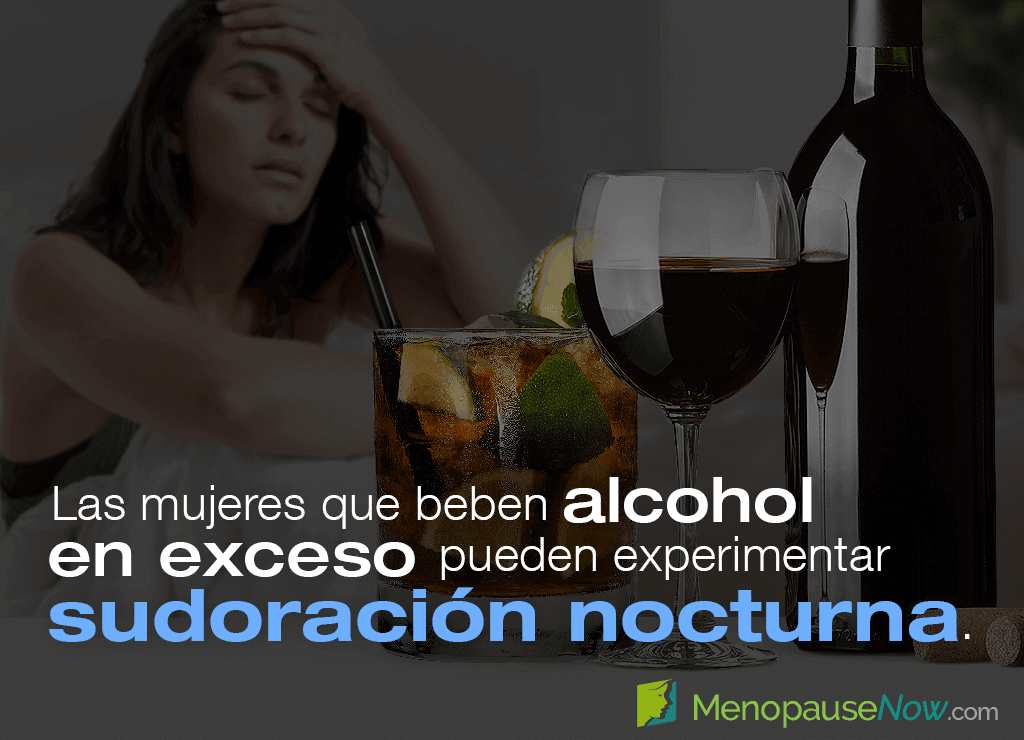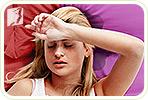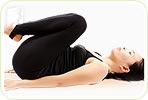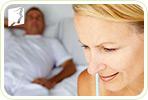Night sweats are characterized as excessive sweating while sleeping. For menopausal women, they are the nighttime counterpart to hot flashes. While night sweats are typically indicative of hormonal imbalance during menopause, there are other factors that can provoke them, including alcohol consumption.
Continue reading to find out why does alcohol cause night sweats and what you can do for long-lasting relief once and for all.
What Typically Causes Night Sweats?
During perimenopause, the drastic fluctuation and decline of estrogen and other key reproductive hormones as women approach the end of their fertile years can induce night sweats.
Low estrogen levels offset the functioning of the hypothalamus, the part of the brain that controls body temperature. When the hypothalamus mistakenly believes the body is overheating, it triggers hot flashes or their nocturnal equivalent.
Night sweats can also be a symptom of hyperhidrosis, panic disorder, fever, hyperthyroidism, medication side effects, and other health problems. In addition, certain lifestyle choices, like smoking, can lead to nocturnal sweating episodes.
Does Alcohol Give You Night Sweats?
In short, yes, consuming alcohol can make you sweat at night.
People who drink alcohol in excess or abuse it may experience hot flashes and night sweats. Oftentimes, when alcoholics try to quit drinking, they will have mild to severe episodes as part of their withdrawal symptoms.
Why Does Alcohol Make You Sweat at Night?
Alcohol in and of itself acts as a vasodilator, causing blood vessels to relax and widen and affecting the body's temperature.
Also, the liver emits heat during alcohol metabolism, creating a feeling of being warm when body temperature is not actually rising. In attempt to cool off, the person may begin to sweat.
As such, it can be said that alcohol-induced hot flashes and night sweats are a consequence of the abnormal changes in our body's thermoregulatory mechanisms.
How Can I Find Relief from Night Sweats?
If night sweats are alcohol-induced, the best way to prevent them is through cutting down on its consumption or considering abstinence, which can be easier said than done. If you abuse alcohol or are alcohol dependent, seek professional help so you can get a plan that is right for you.
If night sweats are due to hormonal fluctuations, keep some of the following tips in mind. They can help you recuperate after waking up from an episode in the middle of the night.
- Sip on cool water throughout the night.
- Avoid hot and spicy foods, caffeine, smoking, and other stimulants before bed.
- Try out bed sheets for night sweats.
- Practice relaxation techniques right before bedtime.
- Change out pajamas for moisture-wicking ones.
- Exercise earlier in the day, especially if doing high-intensity exercise, like interval training, since it has been found to disrupt sleep quality.1
However, long-term relief will only be found once the underlying cause is addressed directly with night sweats treatments, featuring time-tried alternative medicine. With a positive attitude and a little willpower, they can soon be a thing of the past!
Sources
- American Addiction Centers. (n.d.). Night Sweats and Alcohol: Why Alcohol Makes You Hot. Retrieved December 5, 2019, from https://www.alcohol.org/effects/warm-flushed-skin/#does-alcohol-cause-excessive-sweating-
- Cleveland Clinic. (2017). Night Sweats and Women's Health: Possible Causes. Retrieved December 5, 2019, from https://my.clevelandclinic.org/health/symptoms/16562-night-sweats-and-womens-health/possible-causes
- Healthy Women. (n.d.). Could You Have Low Estrogen? Retrieved December 5, 2019, from https://forevher.healthywomen.org/overview-diagnosis/could-you-have-low-estrogen/
- International Hyperhidrosis Society. (n.d.). Night Sweats. retrieved December 5, 2019, from https://www.sweathelp.org/where-do-you-sweat/other-sweating/night-sweats.html
- National Sleep Foundation. (n.d.). Four Common Causes of Night Sweats. Retrieved December 5, 2019, from https://www.sleepfoundation.org/articles/four-common-causes-night-sweats
Footnotes:
- Harvard Health Publishing. (2019). Does exercising at night affect sleep? Retrieved December 5, 2019, from https://www.health.harvard.edu/staying-healthy/does-exercising-at-night-affect-sleep




